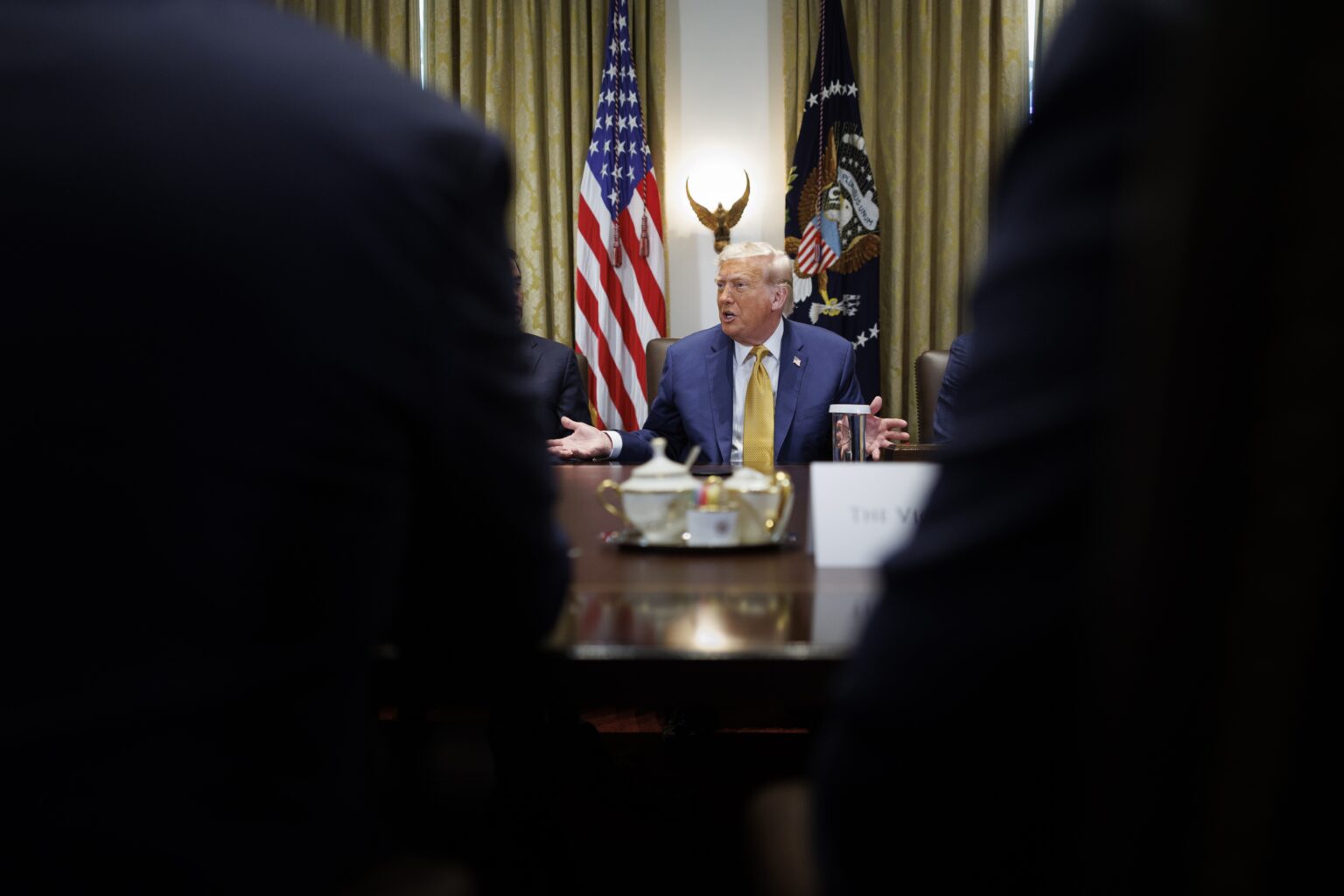Ongoing Controversy Surrounding Jeffrey Epstein and Its Impact on President Trump
Nearly two weeks after the Trump administration declared they had exhausted all publicly available information regarding Jeffrey Epstein’s criminal activities, the controversy persists, casting a shadow over President Donald Trump’s tenure. As he approaches the six-month milestone of his presidency, this lingering scandal threatens to become a new political obstacle amid efforts to highlight his legislative achievements and policy successes.
Recent Revelations Rekindle Scrutiny of Trump’s Connections
The controversy intensified Thursday following a report by the Wall Street Journal that cast a spotlight on Trump’s personal ties to Epstein. This development marks the latest chapter in a series of scandals involving high-profile figures, many of whom have managed to rebound politically despite public backlash. Remarkably, Trump, who faced significant scrutiny over past controversies-including the infamous “Access Hollywood” tape in 2016 and criminal charges last year related to hush money payments-still secured electoral victories in both instances.
Challenges for the White House Amid Public Discontent
While the Epstein saga has not yet proven to be a decisive blow to Trump’s political standing, it has undeniably served as a distraction from his legislative agenda. If media coverage continues to focus on Epstein, it could further erode public support, especially as polls indicate a decline in Trump’s approval ratings. Notably, however, he remains relatively stable within his party, maintaining strong backing among Republican voters.
Trump’s Response and the Political Fallout
In response to the Journal’s report, Trump publicly denounced the story, threatening legal action against both the newspaper and Rupert Murdoch, the media mogul who owns the Journal and other outlets like Fox News. This reaction underscores the tension between the president and parts of the conservative media landscape, which has historically been a key supporter of his administration.
Supporters’ Reactions and Potential Disillusionment
Within Trump’s core base, the Epstein controversy has sparked rare dissent, prompting some MAGA leaders to warn that disillusionment could lead to lower voter turnout in upcoming midterm elections. Many Americans suspect that the government has withheld crucial information about Epstein’s associates, fueling conspiracy theories and distrust. A recent Reuters/Ipsos poll revealed that 60% of Americans believe the government is concealing details about Epstein’s death, with a significant portion of Republicans sharing this suspicion. Additionally, 69% think the government is hiding information about Epstein’s clients, including 62% of Republicans.
Public Perception and the Role of Misinformation
Among Trump’s most loyal supporters, there remains a strong belief that the truth about Epstein’s network will emerge once he regains power. However, the Justice Department’s recent statement that no additional files from Epstein’s case warrant release has intensified frustration among these groups. Despite the media frenzy, most voters are not closely following the case, as online search data indicates a spike in interest but limited engagement. A Quinnipiac University poll found that only about 20% of voters are monitoring Epstein-related news very closely.
Political Ramifications and the Midterm Outlook
Some conservative commentators have predicted that the controversy could cost Republicans key down-ballot races in the upcoming midterms. There is concern among some MAGA supporters that Trump’s perceived inaction against the so-called Deep State and media outlets like Murdoch’s could alienate voters. Yet, by week’s end, many of these warnings have been overshadowed by a rally-around-the-president sentiment, with prominent figures like Stephen K. Bannon framing the situation as part of a broader conspiracy against Trump orchestrated by the media and the “Deep State.”
Media Narratives and Political Strategy
Right-wing pundits have dismissed the allegations, with some mocking the claims through satirical images and dismissing supposed incriminating texts as unlikely to be authored by Trump. Meanwhile, Trump and his advisors have expressed frustration over the persistent focus on Epstein, especially after recent legislative successes such as the signing of the “One Big Beautiful Bill” on July 4, which the White House touts as a major achievement.
Public Opinion and Polling Data
Recent polls reflect a mixed picture: a Reuters/Ipsos survey shows 54% of Americans disapprove of Trump’s handling of the Epstein issue, with only 17% approving. Among Republicans, opinions are divided, with roughly equal proportions approving and disapproving. Despite the White House’s claims of strong support within the GOP, broader polling indicates that over 60% of voters oppose recent spending bills and other policies, highlighting ongoing challenges for Trump’s broader approval ratings.
Conclusion: The Uncertain Future of the Epstein Controversy
While the Epstein scandal has yet to produce a definitive political fallout, it continues to serve as a flashpoint that could influence voter perceptions, especially among disaffected or undecided voters. As the debate over the release of Epstein-related documents persists, the ultimate impact on Trump’s political trajectory remains uncertain. Analysts agree that, for now, the controversy consolidates his base but leaves unresolved questions about the full extent of the case’s implications for his presidency and future elections.

